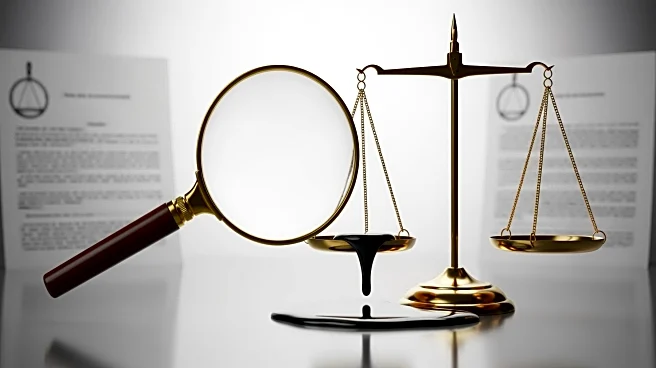What's Happening?
Kessler Topaz Meltzer & Check, LLP is encouraging investors of James Hardie Industries to contact the firm if they have suffered losses due to alleged misconduct by the company. The complaint alleges that
James Hardie made false and misleading statements regarding the demand and stock levels of its North America Fiber Cement distributors during the class period. Despite knowing that distributors were destocking inventory, the company reportedly claimed that demand remained strong and stock levels were normal. Investors have until December 23, 2025, to seek appointment as lead plaintiff in the class action lawsuit, which aims to represent all affected investors. The lead plaintiff will act on behalf of the class in directing the litigation and selecting counsel.
Why It's Important?
This legal action is significant as it highlights potential corporate misconduct and the impact on investors. If the allegations are proven, it could lead to substantial financial recovery for affected investors and set a precedent for corporate accountability. The case underscores the importance of transparency and accurate reporting by companies to maintain investor trust. It also reflects the role of legal firms in protecting investors from fraud and corporate negligence. The outcome of this case could influence investor confidence in James Hardie and similar companies, potentially affecting stock prices and market dynamics.
What's Next?
Investors interested in participating in the lawsuit must decide whether to seek appointment as lead plaintiff by the December deadline. The court will then determine the lead plaintiff, who will represent the class in the litigation process. The case will proceed through legal channels, potentially leading to a settlement or court ruling. Stakeholders, including James Hardie and its investors, will be closely monitoring the developments. The company may need to address the allegations and consider changes to its reporting practices to prevent future legal challenges.
Beyond the Headlines
This case could have broader implications for corporate governance and investor relations. It raises ethical questions about the responsibility of companies to provide accurate information to stakeholders. The legal proceedings may prompt other companies to review their disclosure practices to avoid similar allegations. Additionally, the case could influence regulatory policies regarding corporate transparency and investor protection, potentially leading to stricter oversight and compliance requirements.









